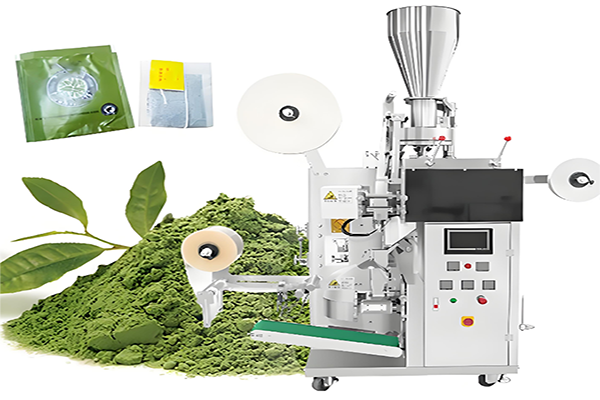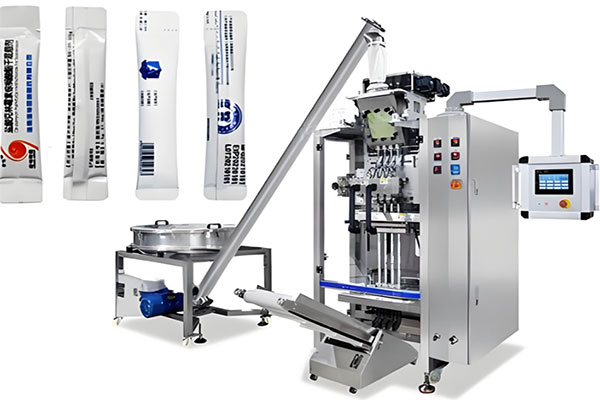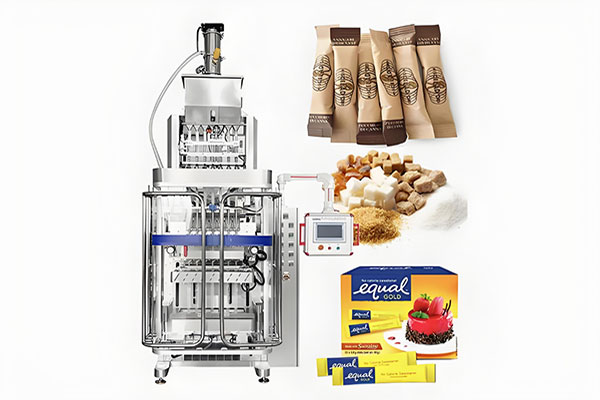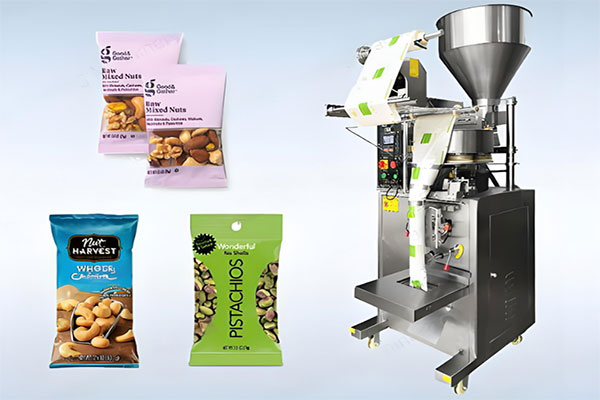Small tea packaging machine price
Thursday November-27 2025 15:30:30
Small tea packaging machine price from $1,500 to $12,000. The price depends on factors such as the level of automation, features, and production scale. They can package powdered, granular, and strip-shaped tea. Because tea is light, easily absorbs moisture, and its aroma is volatile, the sealing and metering accuracy requirements for packaging equipment are very high. Different packaging bag types have different packaging weights: triangular tea bags weigh 2–4g each, flat tea bags weigh 2–3g each, and aluminum foil bags weigh 2–50g each. Different tea bag types can be used depending on the desired weight. Small tea packaging machines typically produce 20 to 60 tea bags per minute and are suitable for small to medium-sized enterprises or tea workshops. These machines are usually equipped with automatic metering, sealing, and bag-cutting functions, are easy to operate, and have a small footprint.
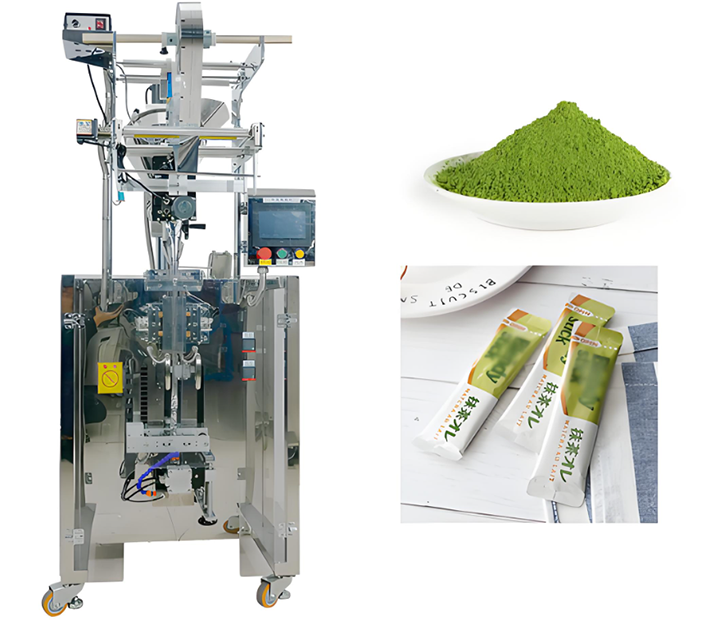
Small tea packaging machines are suitable for packaging various types of tea, such as Longjing tea, green tea, and black tea. The machines are available in horizontal and vertical models. Horizontal models have a larger footprint and are priced between $2,000 and $7,000, while vertical fully automatic models are priced between $1,000 and $4,600 and can be equipped with a weighing module, thus taking up less space.
Small tea packaging machine specifications
| Parameters | Triangular bag model | Inner and outer bag model | Vacuum model | Flat bag model |
| Packing speed | 30-150 bags/minute | 30-100 bags/minute | ≤90 bags/minute | 20-180 bags/minute |
| Measuring range | 1-10 grams | 1-5 grams (inner bag) | 1-1500 grams | 1-10 grams |
| Measuring accuracy | ±0.15 grams | ±0.15 grams | 1/1000F.S.2σ | ±0.2 grams |
| Bag size | Width 40-90mm, length 40-100mm | Inner bag 50-80mm, outer bag 70-100mm | Length 40-100, width 45-75mm | Length 100-500mm |
| Power supply | 220V/50Hz/1.5KW | 220V/3.5KW | 220V50-60Hz/300W | 220V/2.8KW |
| Air source pressure | 5-7Mpa | - | - | ≥0.6Mpa |
| Equipment size | 900×700×1700mm | 900×610×1500mm | 520×630×1750mm | 1250×800×1850mm |
| Equipment weight | 400KG | 500KG | 320KG | 500KG |
| Applicable tea types | Original leaf tea, scented tea | Tea bags | High-grade tea | Various teas |
How to choose suitable equipment according to Small tea packaging machine price?
There are many types of Small tea packaging machines, and different configurations and degrees of automation will lead to large differences in Small tea packaging machine prices.The following analyzes the price range of three mainstream types:
Automatic Small Tea Packaging Machine Price
This type of machine typically features a 304 stainless steel body and a compact footprint. Its main functions include automatic weighing, filling, sealing, and bag cutting, and some models also include a dustproof protective cover. It is suitable for teas with uniform particles, such as green tea, black tea, oolong tea, and small-leaf white tea. Bags are typically three-side-seal or back-seal, with bag weights typically ranging from 1g to 10g. Prices range from $2,000 to $4,000, making it suitable for start-up tea companies, artisanal workshops, or e-commerce processing facilities.
Multifunctional Small Tea Packaging Machine Price
This type of machine typically features hanging line and labeling, simultaneous inner and outer bag packaging, intelligent temperature control, and a coding and inkjet printer. It is compatible with a variety of tea types, including broken tea, herbal tea, dark tea, health tea, and blended tea. A variety of packaging styles are available, suitable for market sales, gift packaging, and other needs. Some models also support automatic film roll replacement. Prices range from $4,000 to $7,000, making them ideal for medium-sized factories and tea companies.
High-Speed Small Tea Packaging Machine Price
This machine utilizes a PLC control system and servo motor drive, enabling continuous packaging (up to 80-120 bags per minute). Equipped with a multi-channel feeding system, visual recognition, and automatic fault alarms, it offers robust operational stability. It's particularly well-suited for export orders of bulk granular and broken tea, as well as OEM production for tea bags and food service supply chains. Some high-end models also offer multilingual user interfaces. Prices typically range from $7,000 to $13,000 or higher.
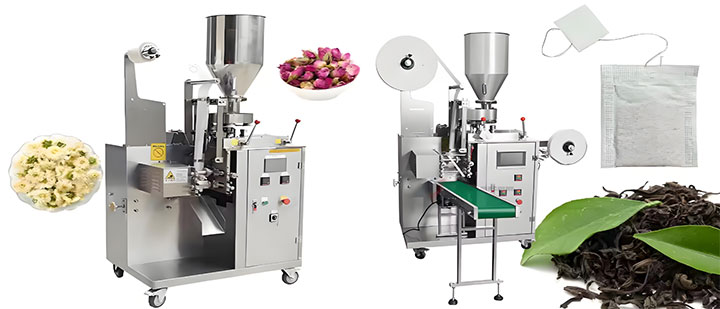
Small tea packaging machine packaging process
The packaging process of a small tea packaging machine.First, tea leaves are evenly fed into a metering device with an accuracy of ±0.5g, via a vibrating screen or screw feeder. The second step is forming the packaging material,the roll film is folded into a tube by a former and sealed longitudinally. The third step is quantitative filling,a screw or measuring cup metering device fills the formed bag with a predetermined amount of tea. The fourth step is transverse sealing and cutting,a heat-sealing mechanism seals the bag transversely and cuts it into individual packages immediately after filling.

Small tea packaging machine price is related to the material used for tea packaging
Tea has high requirements for packaging materials, primarily moisture-proof, odor-proof, and aroma-preserving. Among commonly used packaging materials, aluminum foil composite film offers strong barrier properties, providing excellent moisture and oxidation resistance, making it suitable for packaging high-end teas,This material is the most expensive.Polyester composite film (PET/PE) is transparent and low-cost, making it suitable for packaging ordinary tea bags. Nylon mesh/PLA corn fiber (an environmentally friendly material) is primarily used for triangular tea bags. It is highly permeable, visually appealing, and in line with current environmental trends. Kraft paper composite materials are suitable for packaging traditional or organic teas, combining environmental friendliness with aesthetics.
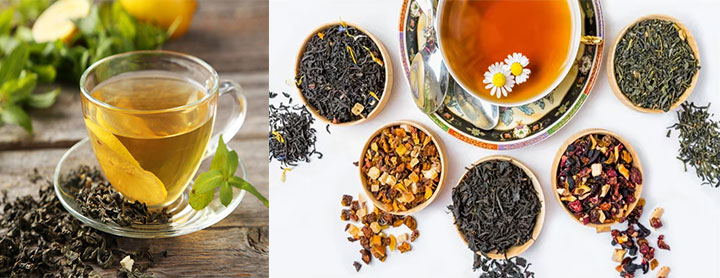
Small tea packaging machine supplier
Machrise offers both standard packaging systems and custom-designed machines to meet the specific needs of tea packaging, including size and production volume. These custom machines include vibrating feeders, bag makers, cutting tool assemblies, PLC control systems, and stainless steel casings. Furthermore, Machrise's small tea packaging machine prices are competitive among packaging machine companies, meeting users' expectations for both manual and fully automatic machines.
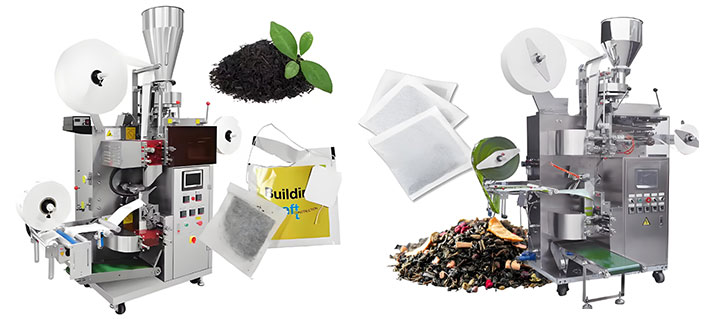
As an indispensable and crucial piece of equipment in the tea industry chain, small tea packaging machines not only significantly improve the efficiency and precision of tea packaging but also play a vital role in ensuring tea quality and extending product shelf life. Small tea packaging machine prices range widely, from $1,500 to $12,000, flexibly meeting the budgetary needs of businesses of all sizes. These factors primarily depend on the machine's level of automation, functional configuration, and production capacity. When selecting a machine, businesses should carefully select a basic, automatic, multi-function, or high-speed packaging machine based on their scale and product characteristics. Furthermore, the choice of packaging materials is crucial, requiring consideration of aroma preservation, moisture resistance, and aesthetics to ensure product quality and market image.
